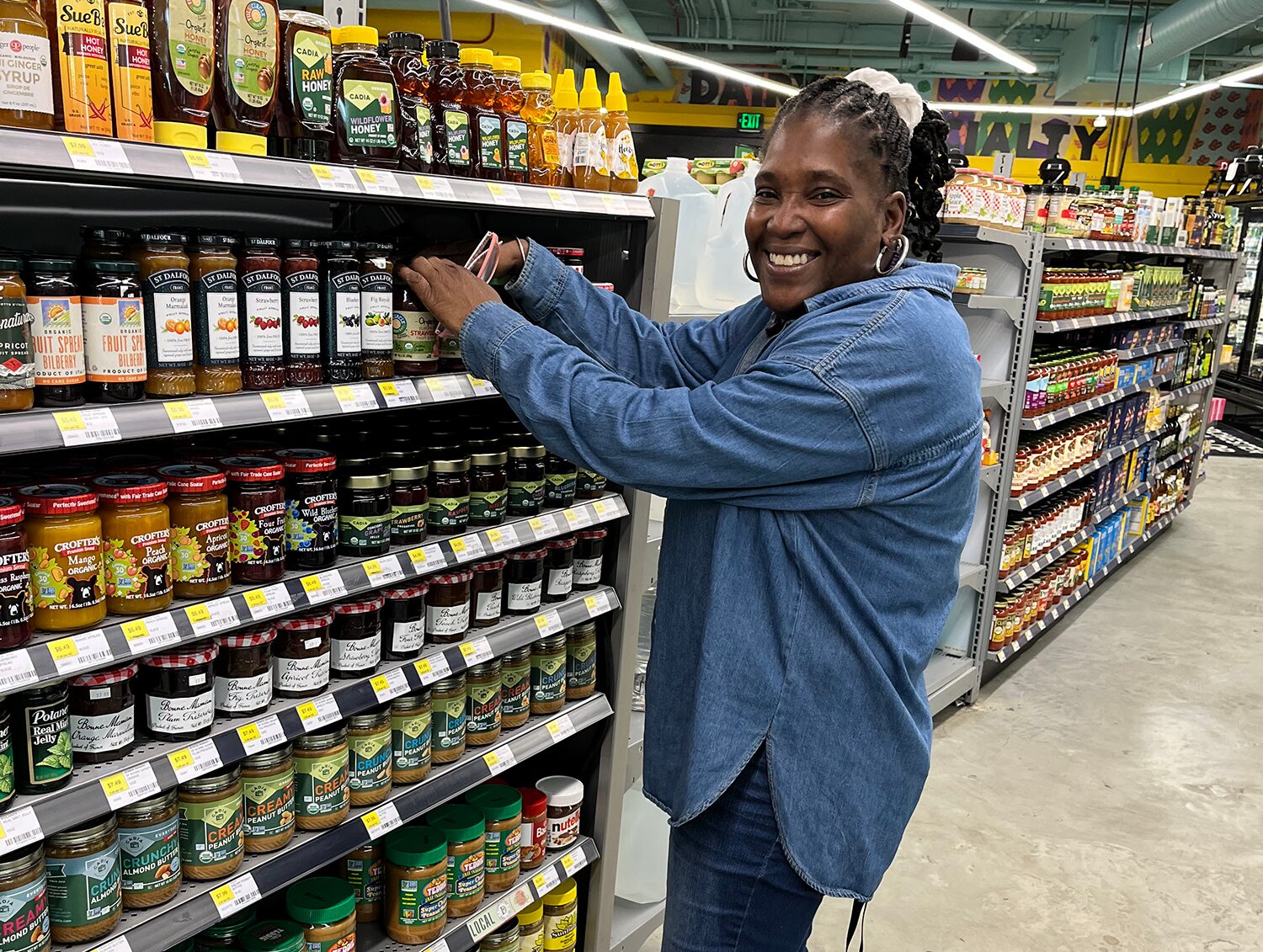Dorchester Food Co-op: Community Power and the Role of Healthy Food Financing
In 2023, the Dorchester Food Co-op opened its doors in Boston’s largest and most diverse neighborhood, fulfilling a vision of more than a decade in the making.
What began in 2011 as a grassroots movement to address redlining, disinvestment, and food insecurity has become a neighborhood anchor—part grocery store, part community hub, and part model for what a just food economy can look like.
Dorchester’s population represents the vibrancy of Boston—home to Cape Verdean, Vietnamese, Caribbean, and African American communities, among others. It is also a place where decades of structural inequities have resulted in food access challenges, health disparities, and a lack of economic opportunity. The co-op was built to directly respond to the community needs by returning control of the food system to the people most impacted.
The Long Road to Ownership
The co-op’s formation required sustained community engagement, fundraising, and education. As a consumer-owned cooperative, the store couldn’t open its doors until enough residents had joined as member-owners. The team behind the co-op—largely women and people of color—organized tirelessly, ultimately building a membership base of more than 1,000. Over the years, they operated farmers markets, ran subsidized CSA programs, and distributed excess food from local partners to neighborhood pantries—all before acquiring a building.
Finding a physical space was a turning point. Along with partners, the co-op, eventually secured a mixed-use development that includes affordable housing on the top floors and the co-op at street level. The project cost more than $3 million, with funds raised through member equity, grassroots campaigns, and public and private grants.
HFFI: Catalyzing Momentum
In 2021, the Dorchester Food Co-op received a $200,000 grant from the Healthy Food Financing Initiative (HFFI). HFFI was established to address the lack of access to healthy food in underserved communities across the nation, particularly in low-income areas. Created by the 2014 Farm Bill and reauthorized in 2018, HFFI is a public-private partnership between USDA Rural Development and the Reinvestment Fund that provides grants, loans, and technical assistance to projects aimed at making healthy food more
accessible and affordable.
As the National Fund Manager for HFFI, Reinvestment Fund is responsible for leveraging private capital, establishing financing and technical assistance programs, and channeling capital to fund eligible projects and partnerships. HFFI funding allowed the co-op to purchase essential refrigeration and cold storage units—critical for offering fresh, perishable, and culturally appropriate food.
“The HFFI grant was a game-changer,” said Jenny Silverman, the co-op’s Development Coordinator and a founding member. The grant gave the team further credibility to help unlock other funding.
The investment served as a vote of confidence in a grassroots-led vision. As Silverman put it, “The more funding you raise, the more other people are willing to pile on.”
“The HFFI grant was a game-changer. The more funding you raise, the more other people are willing to pile on.”
Jenny Silverman, Dorchester Food Co-op Development Coordinator and Founding Member
Jobs, Culture, and Community Impact
Since opening, the Dorchester Food Co-op has created 12 jobs—many for people who had never worked in a retail environment before. The co-op’s shelves reflect the diverse tastes of the community it serves, offering staples and ingredients for Caribbean stews, Vietnamese stir-fries, Cape Verdean soups, and more. The co-op accepts SNAP benefits for groceries to support the affordability of the products offered.
The co-op also features a café that serves breakfast, lunch, and dinner, drawing in neighbors and reducing food waste by repurposing produce that doesn’t sell. While SNAP benefits cannot currently be used on hot food, the co-op works to make meals as affordable as possible and regularly hosts cooking workshops and nutrition education sessions in the café space.
The store also runs a subsidized CSA program supported through local grants. Residents can access produce from local farms, with full-price and fully subsidized options, along with recipes and educational materials to go with each box. Partnerships with gleaning organizations ensure that excess produce is redirected to families who need it most.
Challenges and the Need for Continued Support
Like many independent grocers, the co-op faces steep financial and operational challenges. It lacks the bulk purchasing power of big-box supermarket stores and must contend with supply chain volatility, rising food costs, and the constant pressure to keep prices affordable.
Most co-ops need significant support in the early stages to get off the ground. The first few years are especially crucial for building a foundation of financial stability. Programs like HFFI play a vital role in jumpstarting these efforts—unlocking additional investment, fueling community-driven development, and paving the way toward long-term sustainability. Continued support for initiatives like HFFI isn’t just helpful—it’s essential. The Dorchester Food Co-op is more than a grocery store; it’s a powerful example of what’s possible when communities take back control of their food systems.


